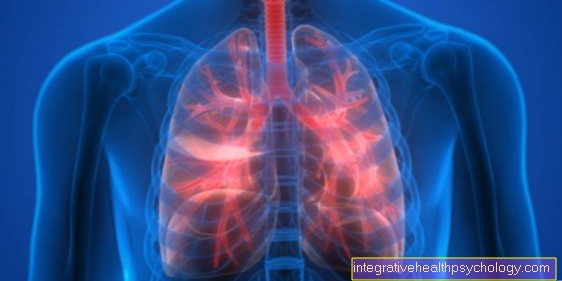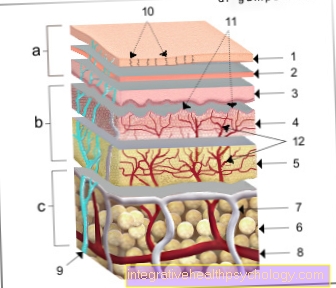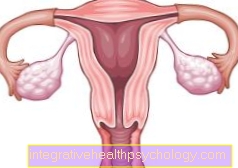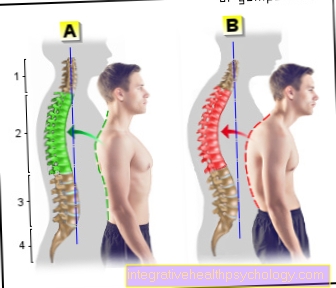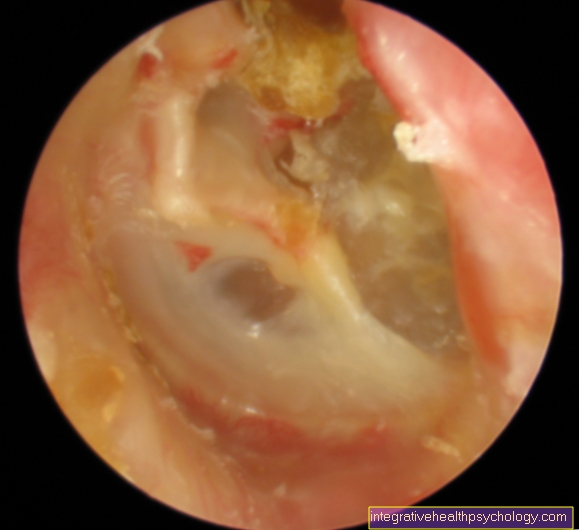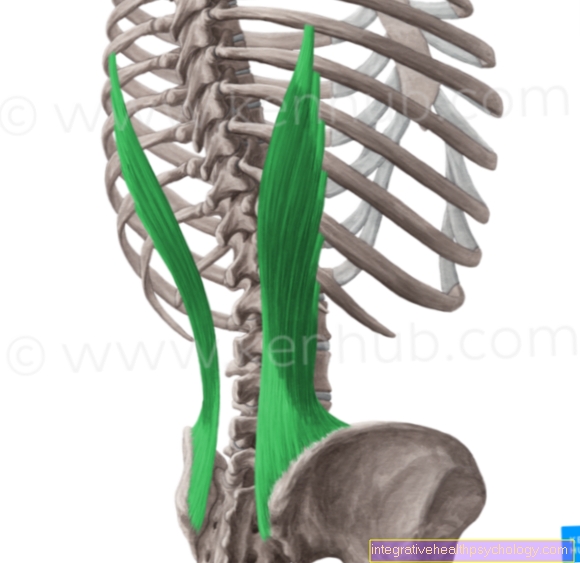Diet for protein loss syndrome
Enteral protein loss syndrome
It is understood as a pathologically increased transfer of protein bodies from the blood through the intestinal mucosa into the intestinal lumen.
This amount is present in healthy people protein far below the amount of newly formed blood proteins every day.
As a result of pathological changes in the intestinal wall, the loss of protein via the intestine can become so great that the circulating protein bodies in the blood plasma decrease significantly.
causes this can be:
- Lymphatic congestion
- Lymphatic fistulas
- Inflammation
- Ulcers or
- malicious changes
the intestinal wall.
The protein bodies in the blood plasma bind fluid in the blood vessels; if the concentration of blood protein decreases, more fluid escapes from the vessels and it is created Edema (Water retention in tissues or in body cavities).
At Lymphatic congestion An attempt can be made by reducing the amount of lymph pressure leaking into the intestines lymph to reduce. Since the lymph pressure increases during the intake of long-chain fatty acids (from commercially available fats and oils), low-fat nutrition the loss of protein in the intestinal lumen can be reduced. However, since adherence to an extremely low-fat diet is difficult to practice, the dietary fat is recommended in whole or in part medium chain fats (MCT) to replace. These fats are carried away with the portal blood, do not increase the lymph pressure and, in the long term, there is an increase in blood protein bodies and a reduction in the tendency to edema.
The excretion of bile salts with the stool, which is often excessive in this situation, is also improved. MCT fats and their use are described in detail in the chapter "Condition after gastric surgery“.





